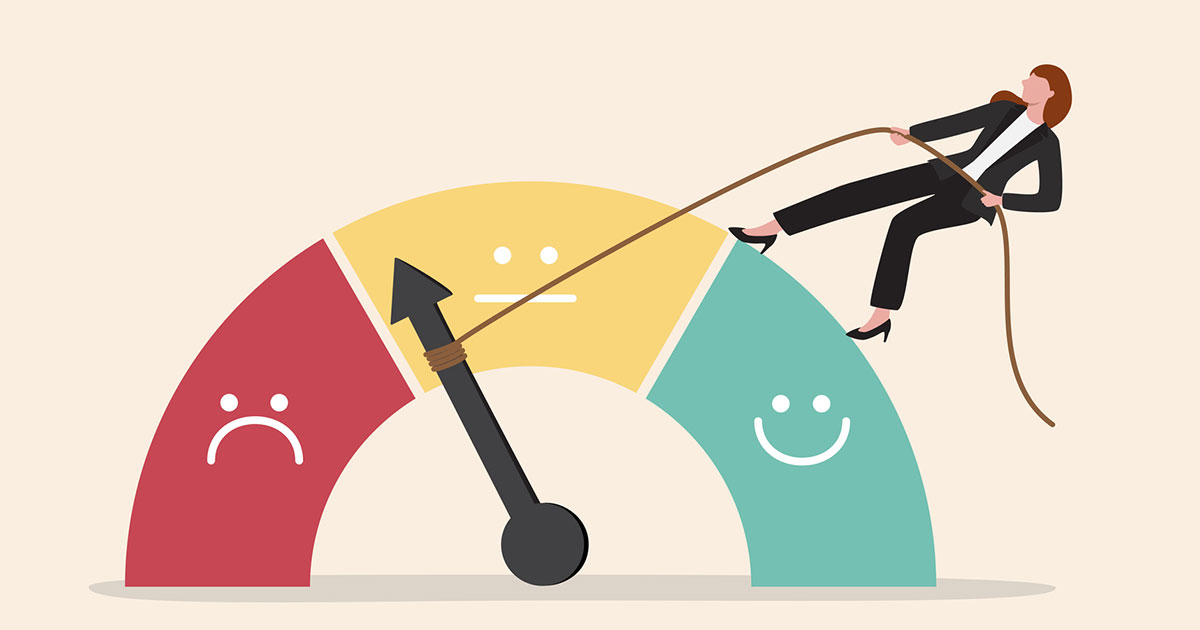Strategies to Increase Productivity, Decrease Interruptions

In Breaking Down the Walls of Busyness: Life Hacks to Buy Your Time Back (Wis. Law., July/Aug. 2023), Julie Bonasso provided strategies all lawyers can use to increase their productivity and find time to do the things most important to them. She wrote, “Over the past decade, I’ve developed a toolkit of life hacks to help lawyers break down the walls of busyness and regain control over their schedules.”
A few of her favorite hacks include using the Eisenhower Box, a decision-making tool that is easy to implement; block scheduling, to allocate large chunks of time to related tasks only; contemporaneous time entry to track billable hours; and an “I Did It” list to show progress (and feel good about it).
A reader wrote in:
Reader: I found much value in Julie Bonasso’s article “Breaking Down the Walls of Busyness: Life Hacks to Buy Your Time Back” but was startled by the statement that participants in a study involving distraction by emails and phone calls “had, on average, a 10-point fall in their IQ.” Was that for each time they were distracted? If so, that led me to believe that most of us are now in negative territory as to our IQs.
I followed up on the footnote she included, and it turns out that, although the details of that 2005 study have not been released to the public, the 10-point IQ loss conclusion was reached by having the participants complete an IQ test while being distracted by emails and phone calls they had to attend to. It is not a permanent loss of IQ, rather a temporary functional loss, as might be the case if we did an IQ test while piloting a plane.
This does not in any way diminish Ms. Bonasso’s emphasis that distraction is all too present in our electronic world and that distraction functionally reduces the quality of the work we do.
Her tips are very helpful in trying to limit distractions and in recognizing that we are actually getting work done.
John Murtagh
John M. Murtagh Law Office
Anchorage, Alaska
We Want to Hear from You! Submit a Letter to the Editor
Wisconsin Lawyer provides a forum for members to express ideas, concerns, and opinions on law-related subjects. Send comments to wislawyer@wisbar.org (include “Letters” in the subject line), or mail to Wisconsin Lawyer “Letters,” P.O. Box 7158, Madison, WI 53707-7158. Limit to 500 words. Writing guidelines available.
Connect With Us Online. Post comments to articles
online, and find us on Facebook, Twitter, LinkedIn, Instagram, and YouTube.
Limitations on Lawyers in Responding to Online Criticism

In Dilemma: Can I Respond to Online Criticism? (InsideTrack, July 19, 2023), State Bar of Wisconsin ethics counsel Tim Pierce responded to the question: “A former client made false claims about my representation in a critical review online. I’m worried about what it may do to my reputation. How can I respond?”
Pierce noted that social media is a prevalent means for people to comment about goods and services they purchased, and lawyers, just as with other professionals, can be the target of online criticism. But guidance on whether and how lawyers can respond to such criticism must be found in the Professional Rules of Conduct. Wisconsin recently joined the states that have issued ethics opinions outlining lawyers’ responsibilities when responding to online criticism.
Wisconsin Formal Ethics Opinion EF-23-01, like several other jurisdictions, concludes that Wisconsin’s disciplinary rules do not permit lawyers to disclose information relating to the representation of a current or former client in response to online criticism. [For a more in-depth look at EF-23-01, see Formal Ethics Opinion EF-23-01: Responding to Online Criticism (Wis. Law., Sept. 2023). Formal Ethics Opinions are available online at wisbar.org/ethop.]
A reader reacted:
Reader: Great guidance, but there needs to be more protection against defamation. Attorneys are left unnecessarily vulnerable.
Once a client (or third party) goes global, confidentiality ought to be tossed out the window, especially if the public record supports the lawyer.
One side being able to speak, but not the other. A person left vulnerable and unable to defend themself. Having your reputation and livelihood maliciously attacked in a worldwide public forum without recourse. Egads!
Distasteful to me.
Daniel Key
The Key Law Firm LLC, Prairie du Chien
Subjecting Juveniles to Adult Prosecution: Holding Individuals Responsible for Criminal Behavior?

In The Freedom to Be Kids: Observations of Charging 17-year-olds in Adult Court (Public Interest Law Section Blog, July 5, 2023), Matthew Kline wrote that in Wisconsin, a juvenile can go through the adult criminal justice system a full year before reaching the age of adulthood. Naturally, this dynamic is a matter of controversy, he wrote, as it can have wide-ranging consequences for the individual charged.
In the blog, Kline noted the distinctions between juvenile court and adult court, described the advantages of juvenile court for individuals charged with criminal acts, and explained conditions faced by 17-year-old defendants in the adult criminal justice system.
Kline then discussed contemporary views on the current juvenile justice system and concluded that there is ample room for improvement.
A reader posted a comment:
Reader: I summarize the article as advocating use of the juvenile justice system because it is a means to help a criminal avoid adverse consequences of criminal behavior. (I realize that all defendants are entitled to a presumption of innocence. Like the article’s author, I also believe that goes without saying. My critique, like the article, addresses the vast majority of defendants who are rightly arrested.) The article juxtaposes the juvenile justice and adult justice systems. It states that the juvenile justice system offers a young criminal:
1) Release without bail/avoidance of pretrial confinement;
2) Avoidance of (pretrial or post-sentencing) confinement with other criminals;
3) Hiding the criminal’s arrest and conviction record from the general public;
4) “Certain services” of uncertain value in rehabilitating the criminal; and
5) More lenient penalties than adult court, including avoidance of “mandatory minimums and other statutory requirements.”
The article nowhere addresses the question of public protection. Failure to consider this most critical issue nullifies any utility of the article in forming public policy.
The closest the article comes to addressing public protection is its flawed treatment of the question of recidivism. The article says, “studies conducted over the past few decades noted that juveniles convicted of violent offenses in adult court had higher rates of recidivism when compared to juveniles convicted of violent offenses in juvenile court.” The article draws the conclusion that “these studies … illustrate the lack of deterrence adult court can provide for some juveniles.”
I’ve heard this argument before when a retired judge was speaking on the subject. I asked him whether he had read the police reports of the incidents giving rise to the arrests. He had not. I submit that the strength of the case (including willingness of witnesses to testify), the defendant’s prior record, plea bargaining, and the variation in treatment of crimes in the many jurisdictions – as well as the individual judges in those jurisdictions – make it impossible to compare criminal conduct in different cases based simply on the statutory section – the crime – for which the criminal is initially charged or eventually convicted. Conduct that results in conviction for “X” in one jurisdiction will not result in a conviction for “X” in all other jurisdictions.
To provide actionable information, a study must compare like behavior to like behavior, not like conviction to like conviction. Studies that weigh only the crime for which the criminal is convicted do not provide sufficiently reliable information to support changes in public policy.
John M. Gallo
Houseman & Feind LLP, Grafton
» Cite this article: 96 Wis. Law. 6-7 (October 2023).
